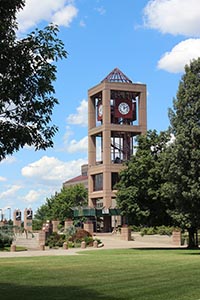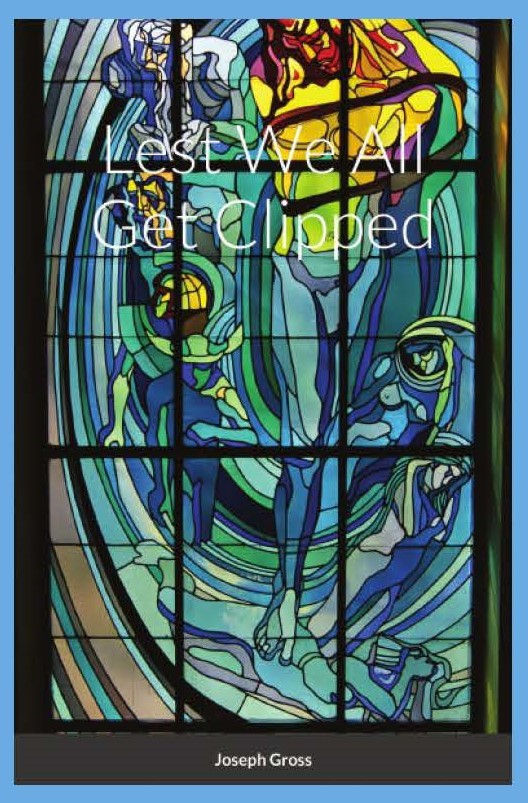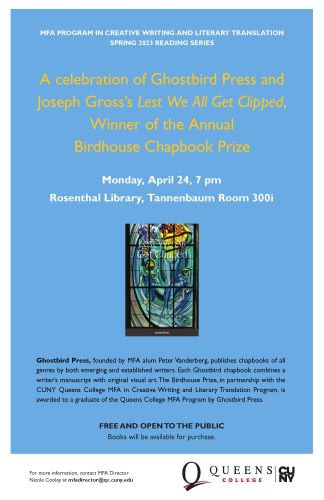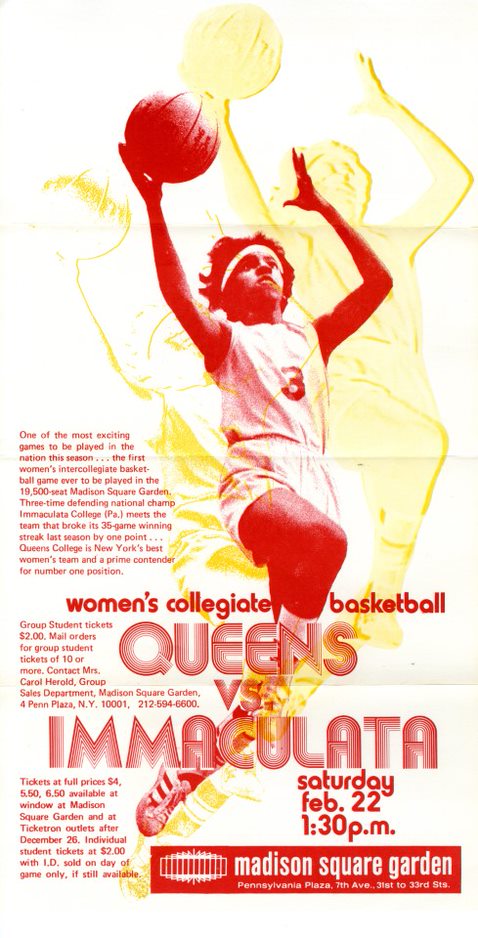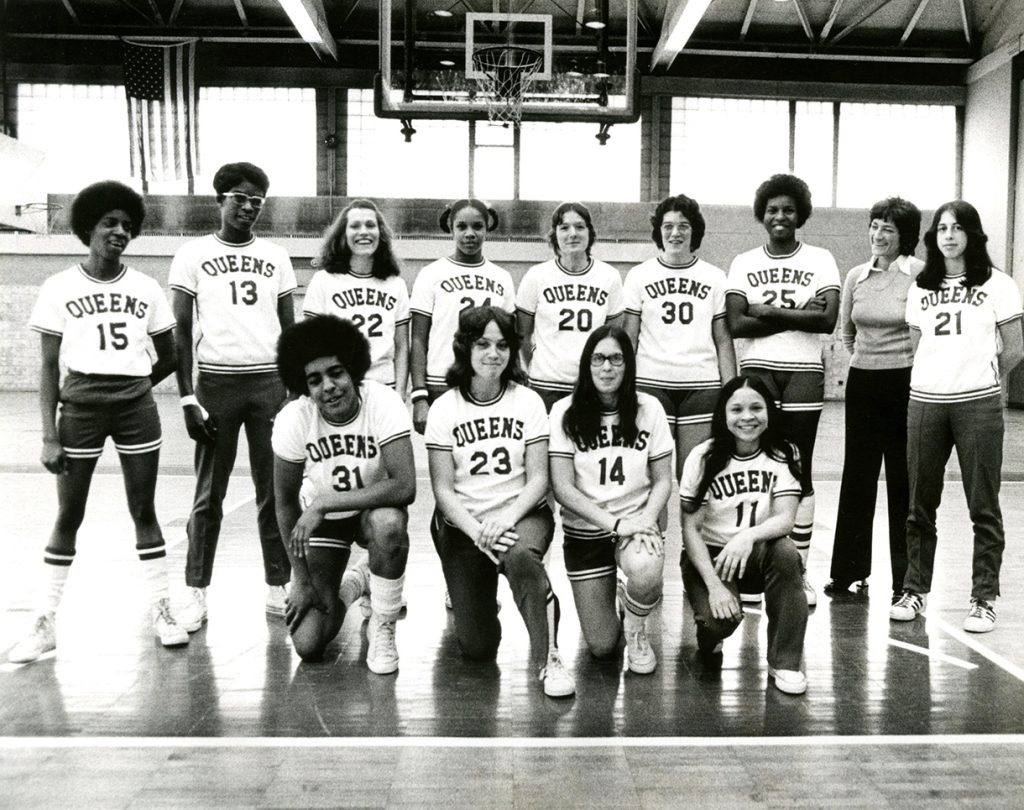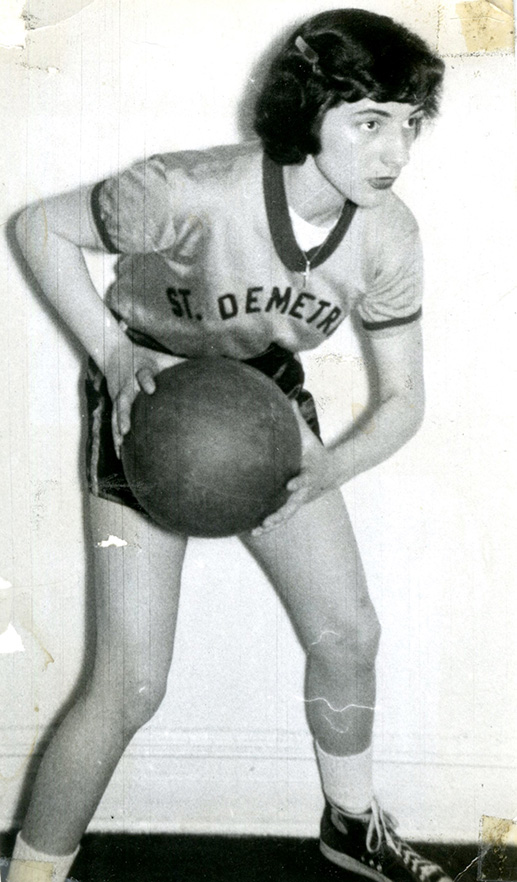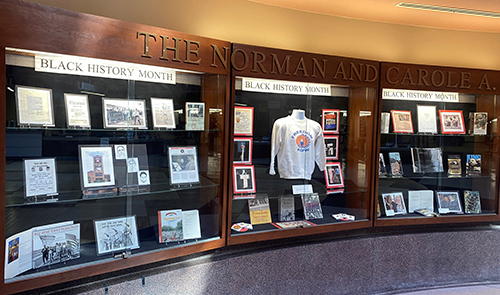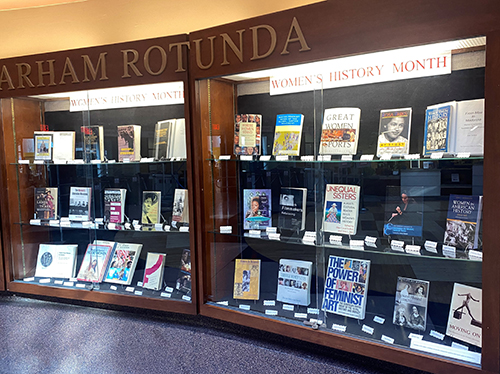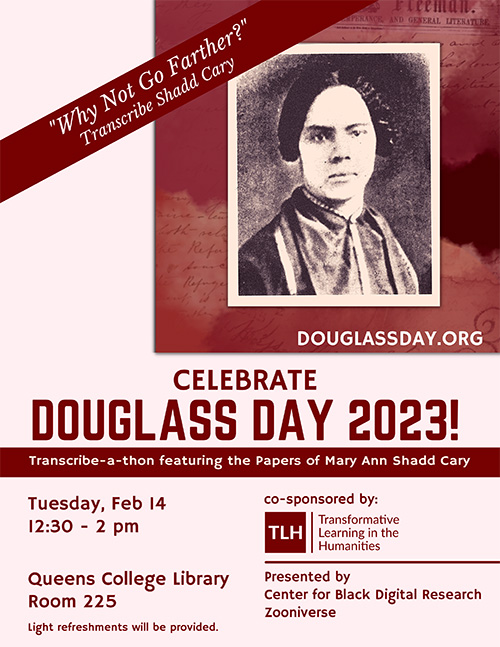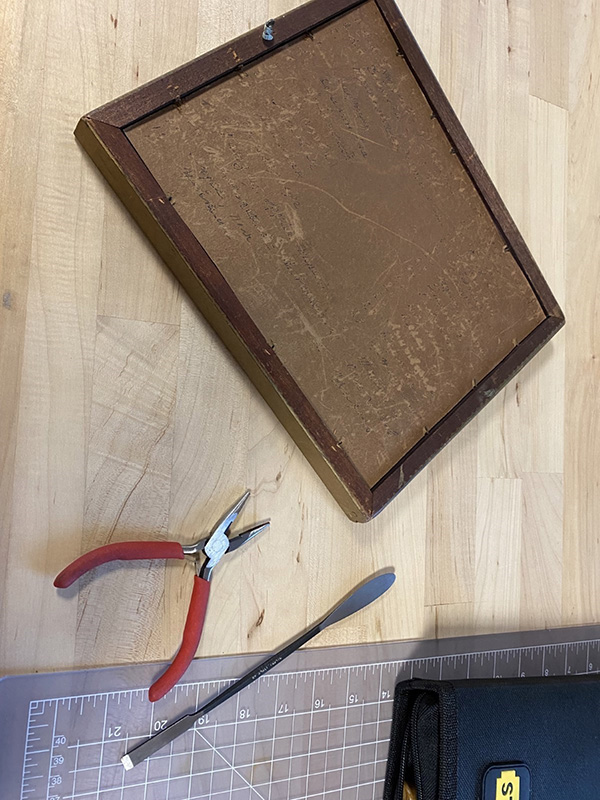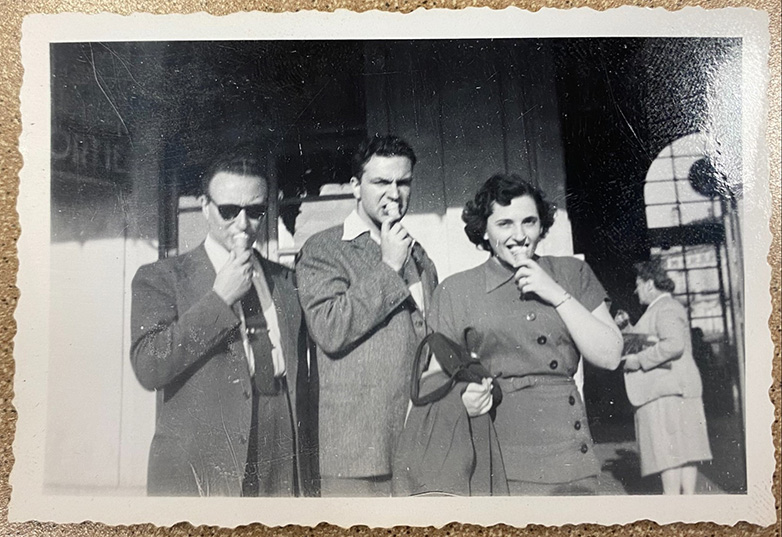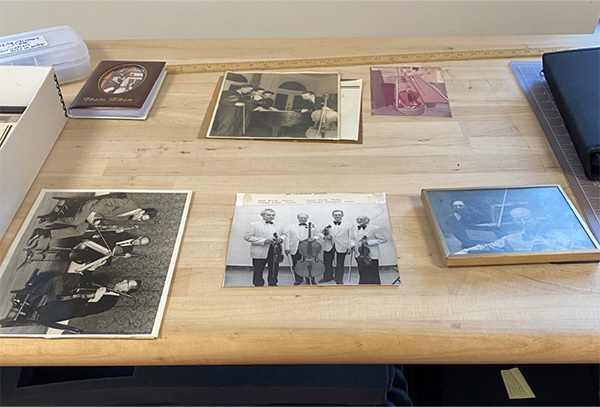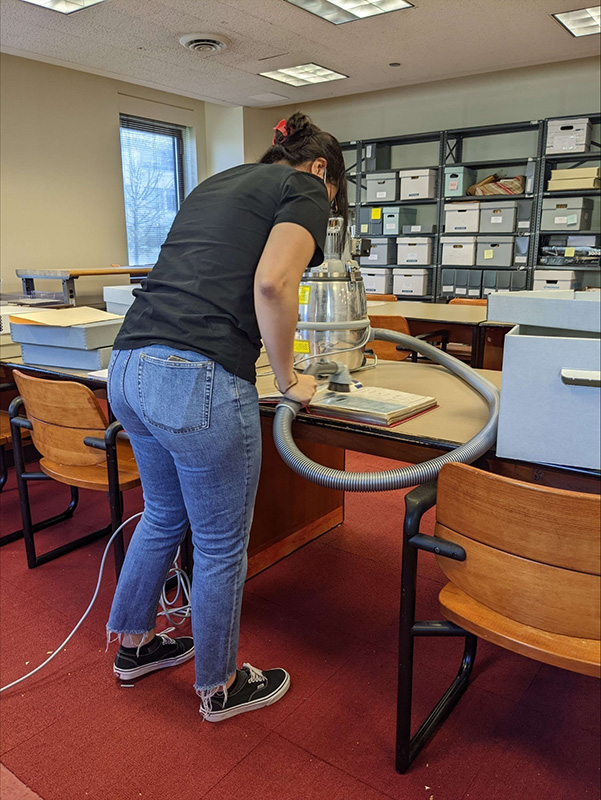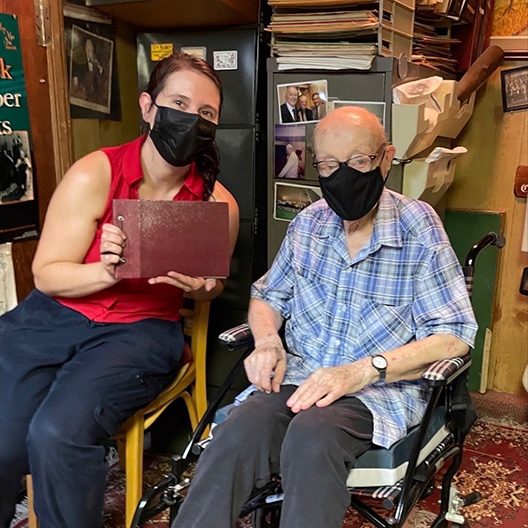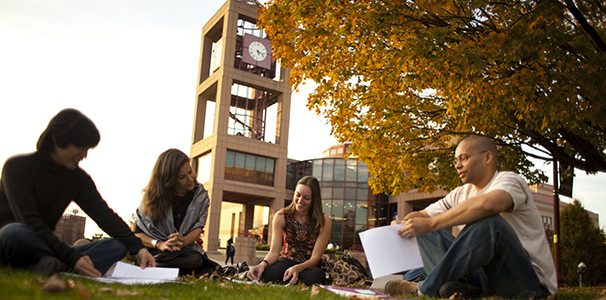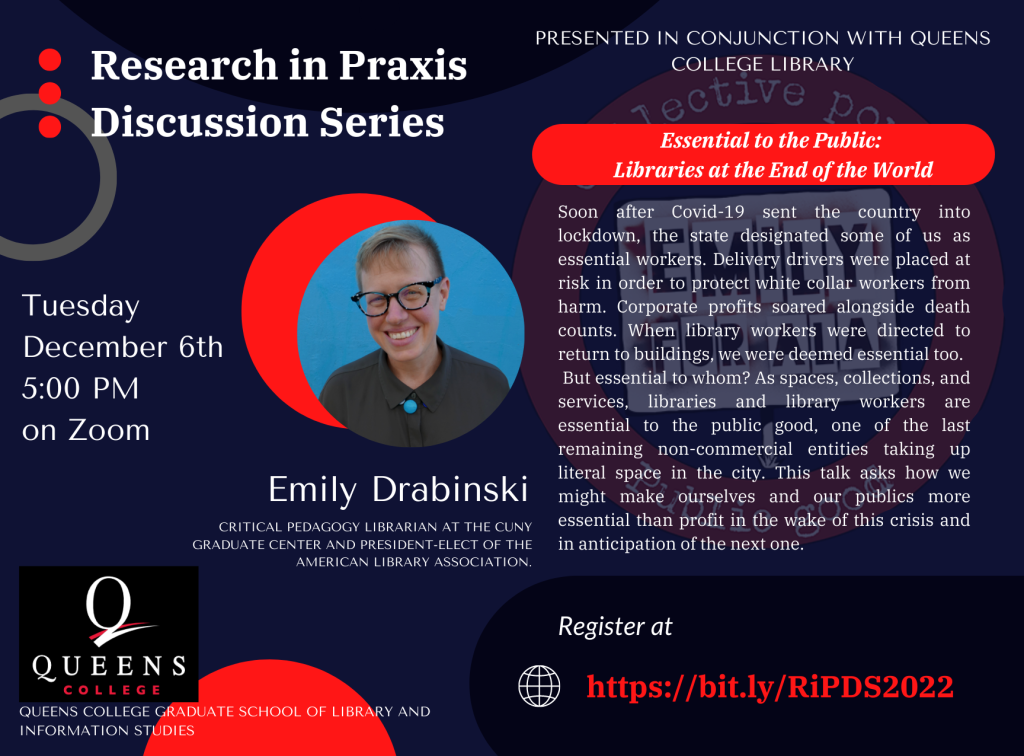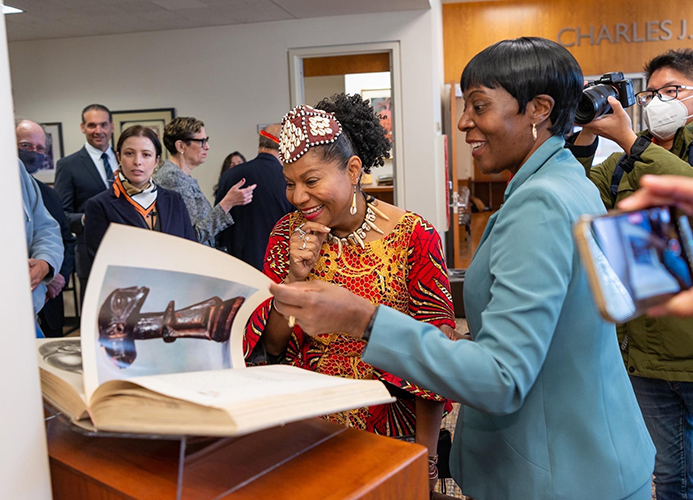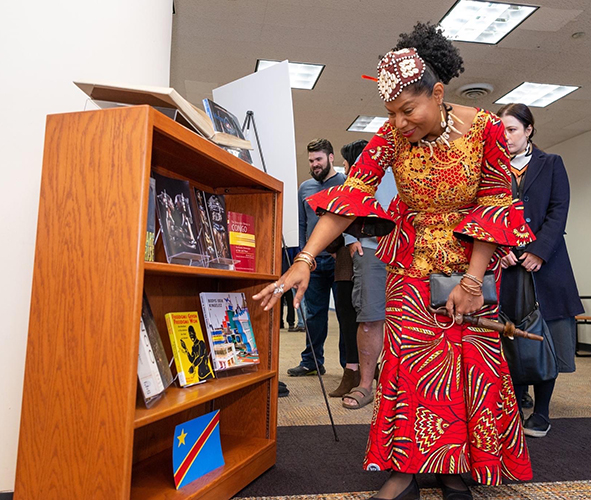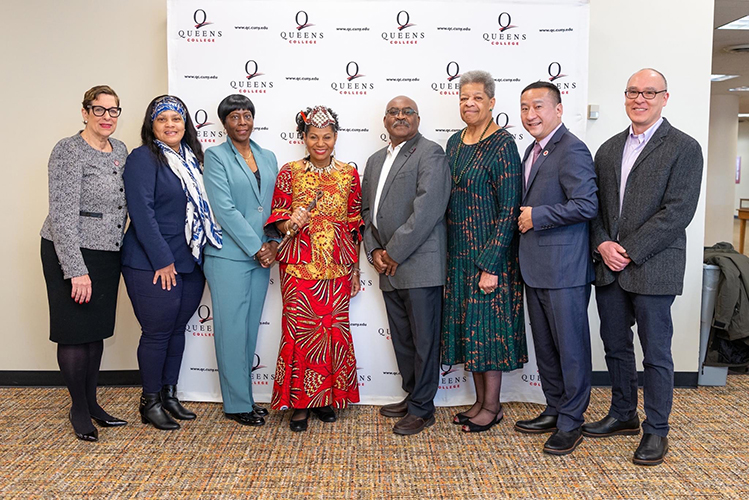By Pamela Padilla
The Alexander Kouguell Collection follows the life and career of Professor Emeritus Alexander Kouguell (1920-2022), whose nearly 70-year tenure and career are documented in a newly processed collection at the Queens College Special Collections and Archives.
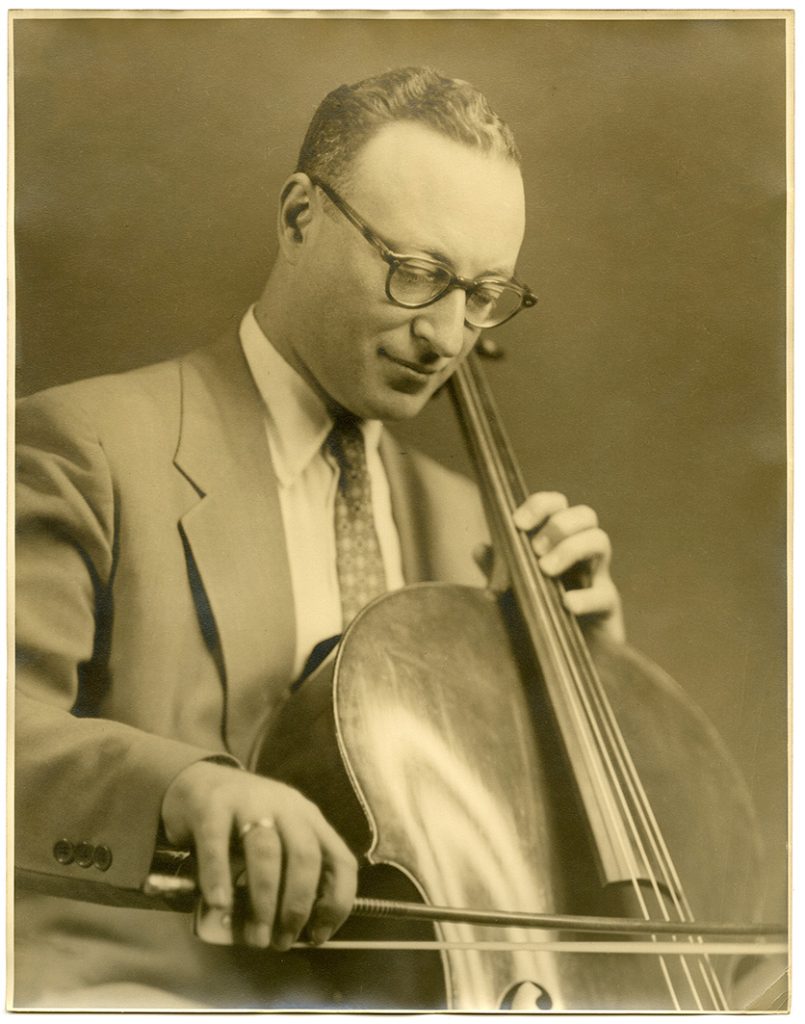
Alexander Kouguell was born in Crimea on March 27th, 1920 to parents Arkadie and Marie Kouguell (nee Malinskya). Both his parents had been child piano prodigies, and met at the Saint Petersburg Conservatory whilst studying music. His father’s career as a composer, as well as worsening political conditions, had prompted a brief move to Constantinople (now Istanbul), Turkey, and later Beirut, Lebanon where the family remained for nearly 25 years.
Alexander Kouguell received a diploma from the Ecole Normale De Musique de Paris in cello in 1938, his bachelors and master’s degrees from the American University in Beirut in 1941 and 1943 respectively, and enrolled at Columbia University for a PhD in Comparative Literature in 1944. In this time, he continued his career in music, which led his first position as a professor of cello at the Peabody Institute in Baltimore.

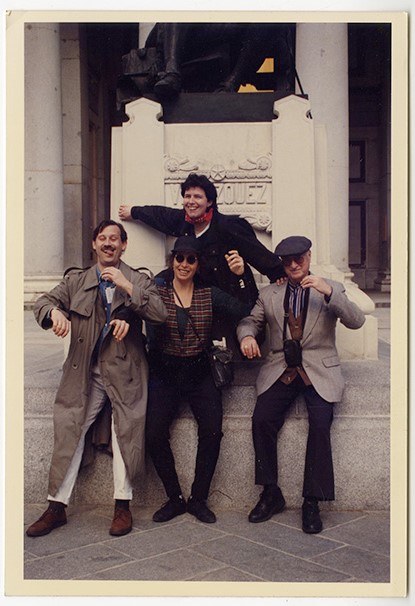
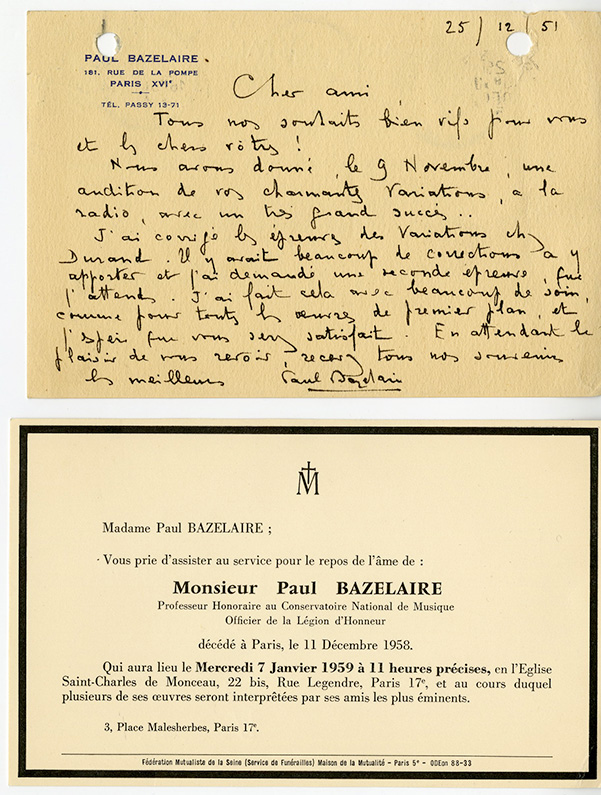
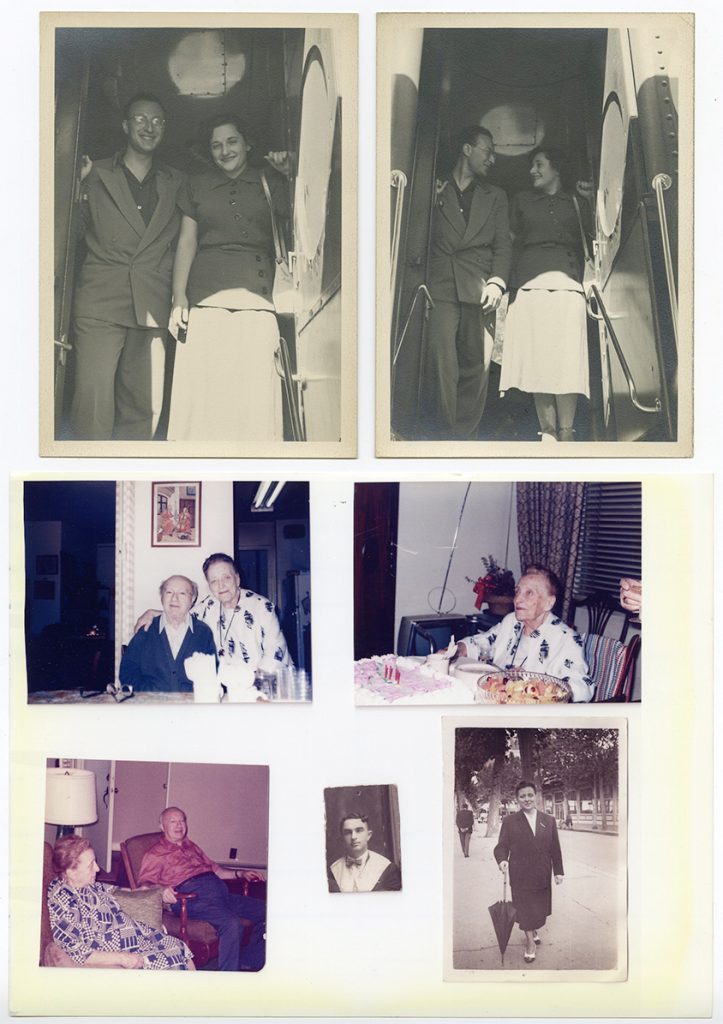
Uncertainty regarding his continued funding would bring him back to New York, where he met musician Leo Kraft. Kraft recommended he apply for a position at the newly minted Music Department at Queens College. He became a professor at the Queens College Department of Music, later renamed the Aaron Copland School of Music, when the area surrounding Queens was still farmland—a far cry from the metropolitan borough it is today. His family followed him soon after in 1956, with the collection even including his parents’ naturalization papers.
Kouguell’s career afforded him the opportunities to play nationwide and internationally with groups such as the New York Chamber Soloists, the Musica Aeterna Orchestra, and the Silvermine Quartet. Hotel brochures, concert programs, and even audio recordings of concerts are available upon request in his collection. True to the deep respect he commanded in the community, the collection holds many music manuscripts of pieces that were dedicated to Alexander.
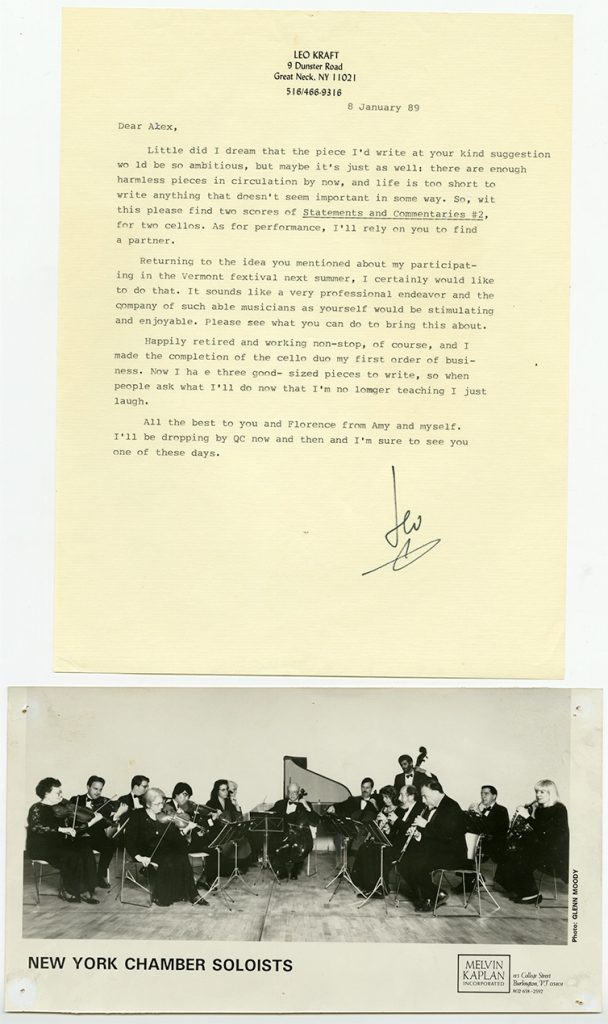
Although his career and Queens College papers are a testament to his cultural impact, what makes Kouguell’s collection exceptionally special are his personal papers which outline not only his life but also the connections that made him a valued member of the Queens College community. Exchanges with his impressive mentors in France can be found in the same subseries as their obituaries, denoting the passage of time and the impact his mentors had on him.
His eclectic collection includes photographs of his honeymoon, an audio recording of him gently guiding his oldest son’s piano lesson, a brief biography of his parents, and photographs that show the steady progression of his family from the 1940’s through the present. All of the notes that color a person’s life is existent in his collection. The heart of the Kouguell collection lies in the remembrance that the measure of a person’s life is traced through their legacy, but their impact can be felt in the treasures they leave behind.
The Alexander Kouguell Papers are now open for research. To make an appointment to view the collection, please contact the archives at qc.archives@qc.cuny.edu.
Pamela Padilla served as the Shirley Klein Rare Books and Manuscripts Graduate Fellow over the 2022/2023 academic year. Her Fellowship was funded through the generosity of Shirley Klein.
Share Post:
